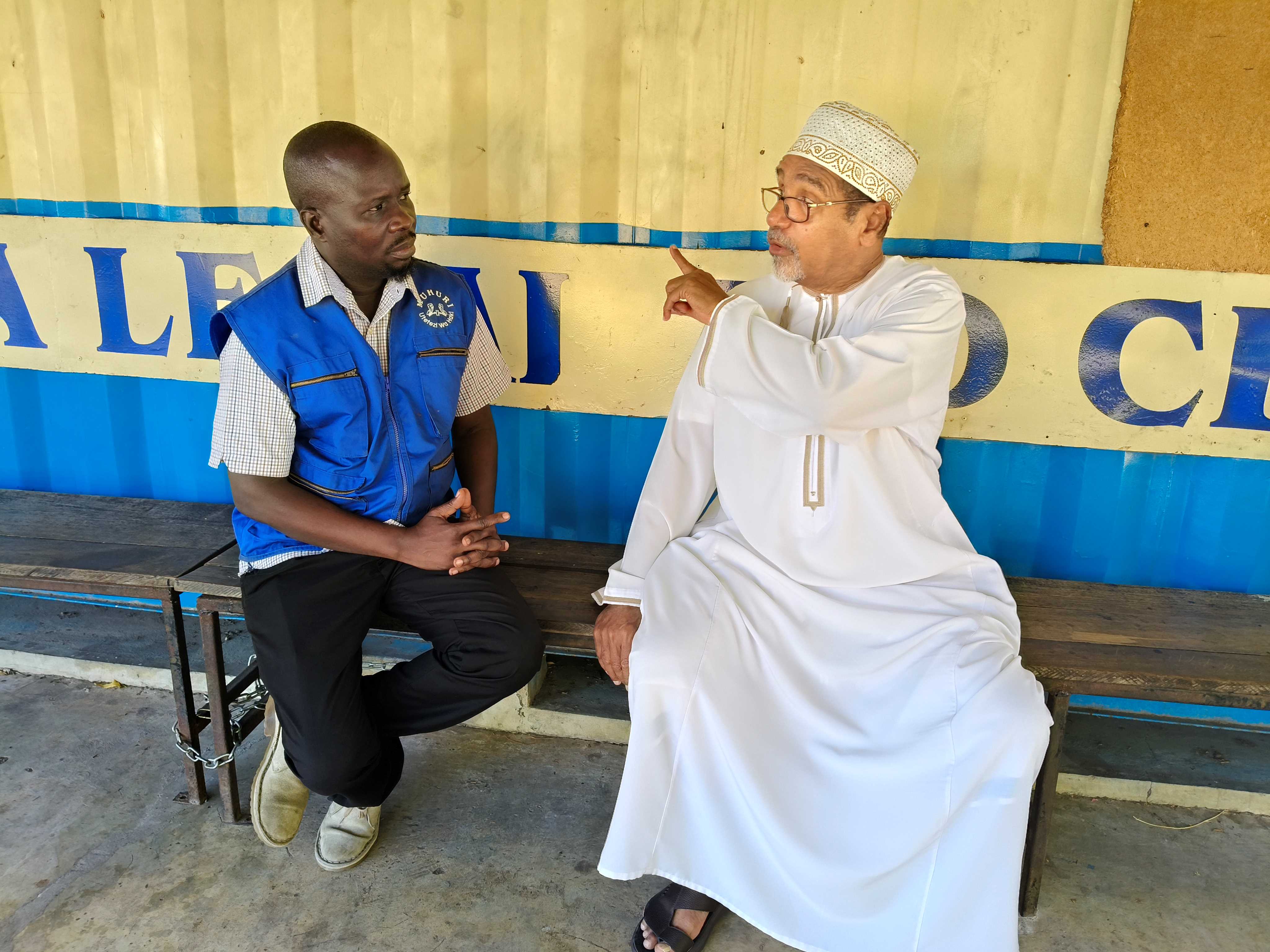 Muhuri's Francis Auma and
Khelef Khalifa at the Muhuri Legal Aid Clinic / BRIAN OTIENO
Muhuri's Francis Auma and
Khelef Khalifa at the Muhuri Legal Aid Clinic / BRIAN OTIENOVeteran human rights activist Khelef Khalifa has warned the Kenya Kwanza administration they will create anarchy in the country through their handling of protests.
Khalifa on Thursday said President William Ruto’s remark over shooting protesters legs is wrong.
He said the President appears to be dismissive of young people's significant challenges, potentially exacerbating societal instability.
“There is a concerning absence of empathetic engagement from the President, particularly when viewed against the backdrop of tragic fatalities among the youth resulting from police actions in his administration,” Khalifa said in a statement.
President Ruto's remarks on law enforcement and public protests evoke considerable apprehension regarding his administration's methodology concerning youth engagement and public safety in Kenya, he said.
President Ruto on Wednesday breathed fire accusing the opposition of trying to topple him through unconstitutional means.
He dared them to try it.
“I am not a coward. If you want to remove me, don’t hide behind young people or rent goons. Come face me directly,” Ruto said.
On the other hand, Belgut MP Nelson Koech has called for a shoot-to-kill order on violent protesters out to destroy other people’s property.
In a viral video, Koech thanked President Ruto for directing the police to shoot, albeit on the legs, anyone masquerading as a protesters to steal or damage other people’s property.
He however, said the order should instead be a shoot-to-kill.
Khalifa on Thursday said such remarks raises critical questions regarding implicit endorsement of aggressive policing tactics by the head of state.
The veteran activist noted that credible accounts indicate the presence of undercover officers operating in plain clothes and unmarked Subaru vehicles, who have reportedly engaged in indiscriminate shootings against civilians.
These incidents, he said, highlight serious inadequacies within the accountability and oversight frameworks governing police conduct under Ruto's government.
“Analysis of the events of 2007/2008 post-election violence reveal the persistent ramifications of political and ethnic violence in Kenya, including the horrific incineration of 33 individuals—men, women and children—at the Kiambaa church.
“This atrocity prompted an indictment at the International Criminal Court, which remains unresolved and serves as a stark reminder of the potential for renewed violence in the region,” he said.
Khalifa expressed concerns that young men might resort to retaliatory violence in response to harsh law enforcement measures.
“It is particularly concerning that Ruto has instructed police to target the legs of alleged offenders. This directive lacks a foundation in established legal protocols and principles of proportionality.
“It is essential to acknowledge that the youths who have been casualties of police gunfire were engaged in protests rather than acts of looting,” he said.
Furthermore, he said, the ongoing issue of looting from public coffers within his administration raises significant ethical concerns, particularly when the lower socio-economic classes are disproportionately targeted by law enforcement actions.
Khalifa said reports suggest complicity between looters and law enforcement, as demonstrated by an incident involving the Kenya Human Rights Commission, where armed individuals were allowed to breach the premises while police remained inactive just 200 meters away.
“This disparity in law enforcement response underscores a pressing need to re-evaluate the national protocols governing police interactions with civilians and criminal organisations,” he said.
“It is imperative to remind the President that the trajectory of failed states often parallels the conditions present in these tumultuous times, a path he must be cautious to avoid.
“Should the rule of law erode, President Ruto will bear significant responsibility for the consequences.”












